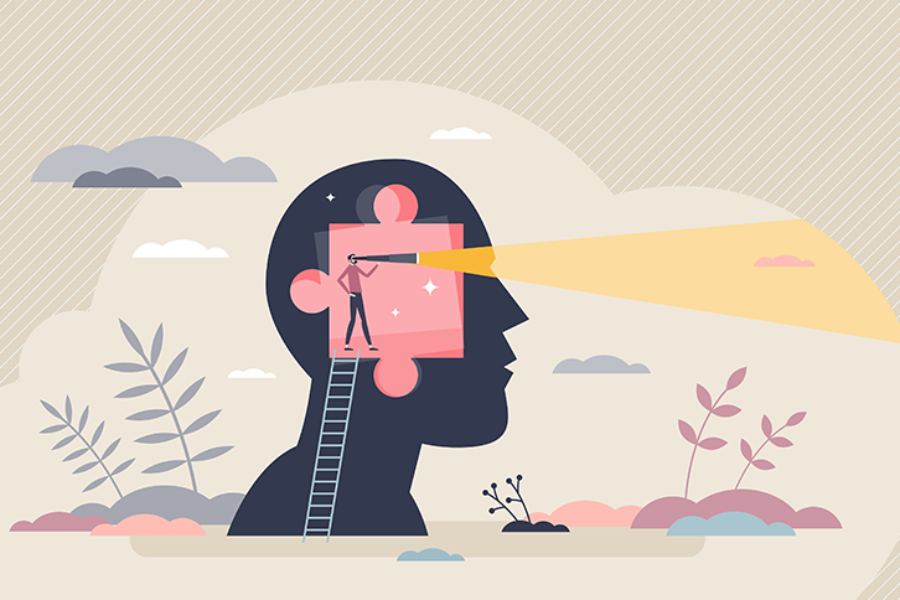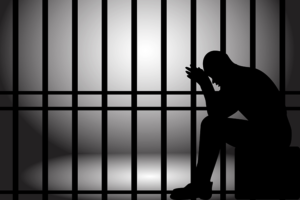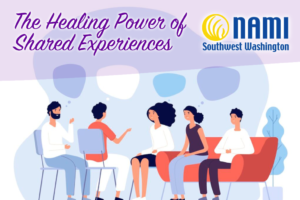Anosognosia, the psychological term for a “lack of insight,” manifests in an inability to understand that you have symptoms of mental illness. Throughout my mental health journey, I have come to understand that the gift of insight is a powerful one — and it is an ability that many of us take for granted before losing it.
When I began experiencing episodes of psychosis, my symptoms took hold instantly, and my self-awareness and critical thinking would vanish. I was no longer able to distinguish between real life and the false reality I was thrust into. I lost the ability to question myself and fully absorbed a new narrative. Once this complete distortion took over, I was unable to understand that my interpretation and recollection of events were false. I could not identify that I was ill.
This left me incredibly vulnerable. Without my ability to comprehend reality or reason, I stopped making appropriate choices. I could no longer protect myself, and others could not properly understand me.
Understanding The Basics Of Anosognosia
Anosognosia typically occurs in cases of serious mental illness (SMI) in which a person does not have the capacity to understand that they are ill. Unsurprisingly, then, the condition is a leading reason why people with SMI refuse medication or treatment. It often presents in people with schizophrenia, dementia and bipolar disorder. Anosognosia is most common in people with schizophrenia, affecting between 50% to 98% of this population.
When discussing this condition, it is important to note that anosognosia is not a choice — it is a medical condition. It is not an attempt to escape the present or an unwillingness to handle reality. Willpower could not cure me of anosognosia but having the fortitude to keep fighting afforded my mind the time it needed to heal (with the help of medication).
My Experience And Lessons Learned
When I was hospitalized for psychosis, I could not distinguish reality from delusion, but, thankfully, I complied with taking an antipsychotic medication anyway. Taking this medication allowed me to regain an adequate amount of self-awareness, accurately perceive my whereabouts and rebuild life skills so I could thrive independently and safely. I continued to take my medication consistently after my release from the hospital.
Looking back on my hospitalization, I now know that the best course of action when dealing with SMI is to use our self-awareness and critical thinking to seek help while we still have some insight — before things spiral out of our control. It is such a gift to sense you might be in trouble and then have the wisdom and fortitude to seek help before experiencing irreparable harm. Levels of self-awareness can vary —allowing you to acknowledge your illness at certain times but not others — so it is important to use it when you have it.
Even though I did not take advantage of this insight when I had it prior to my hospitalizations, I know that I can now use my hard-earned self-awareness to prevent acute illness from happening again. I have chosen a more relaxed lifestyle with less stress and external pressure, and I carefully monitor my state of mind. If I begin to feel unstable or “out of sorts” in any way, I go home immediately and re-center myself. I keep an eye out for my “critical point” of knowing I’m in trouble — a point when I will ask for help before my self-awareness vanishes.
My Recovery Process
My cognitive and emotional recovery from psychosis has been a gradual one, and one of the last elements of my life to “come back” to me has been my inner dialogue and my relationship with myself. I have had to re-learn how to practice self-care and acknowledge that I deserve it. I remind myself that I love myself enough to take preventative action. I feel like this restored self-awareness is intertwined with this crucial inner dialogue that has helped me feel whole and free again.
As much as I’d love to push forward and never look back at my three psychotic breaks a decade ago, I accept and understand that I always have to be careful and know when to put on the brakes. As much as I’d love to consider myself “mental illness free” since I have made a full cognitive recovery, and I’m thriving in a way I could never have anticipated, I know I have to be aware and critical. I have to be discerning to avoid acute illness that could jeopardize everything I have built for myself in my life: a career, a marriage and a family.
I value personal insight like a salvation, and I will never take it for granted again. It is our brain’s natural response to protect us. I have a second lease on life that I never thought possible — and I will use what self-awareness to protect and preserve this new life I have.
Sarah Ryan is a writer covering mental illness topics like stigma, recovery and hope. She is a survivor of schizophrenia, and she is an ongoing NAMI Wake County blog contributor and NAMI Connection support group facilitator in North Carolina. She is now a wife, mother and proud owner of two Pitbull rescues.
Source: https://nami.org/Blogs/NAMI-Blog/February-2023/The-Power-and-Value-of-Insight




